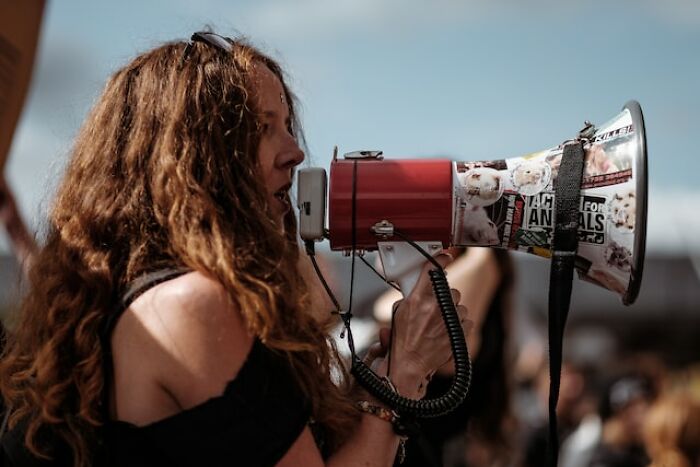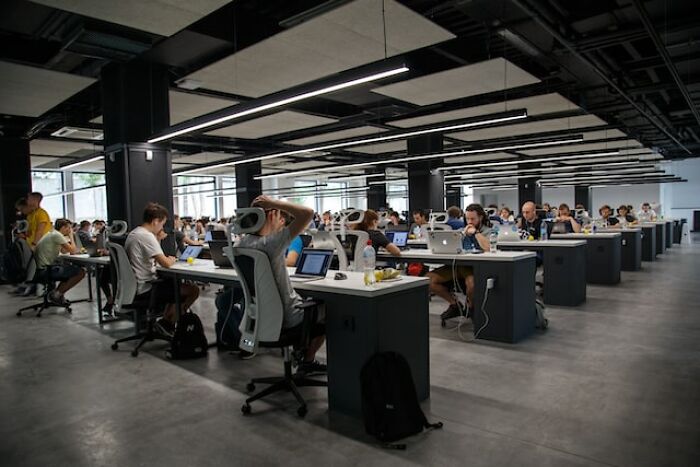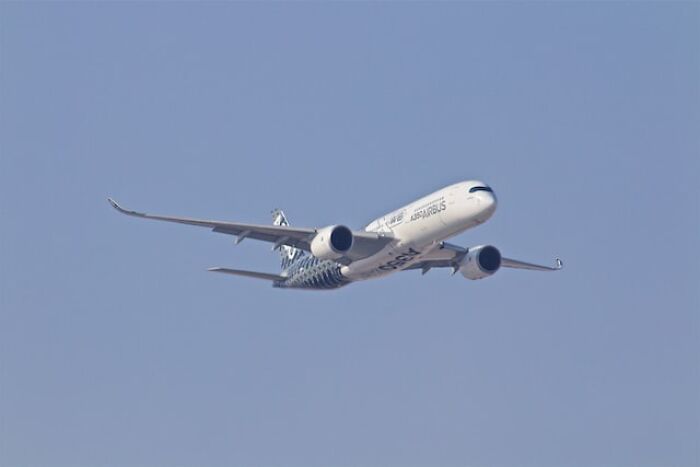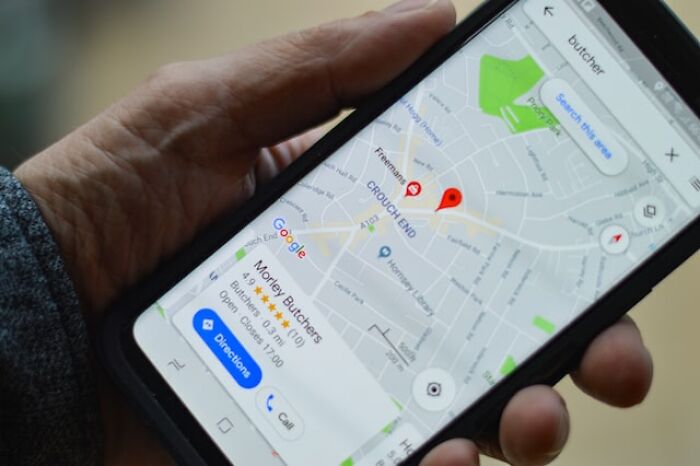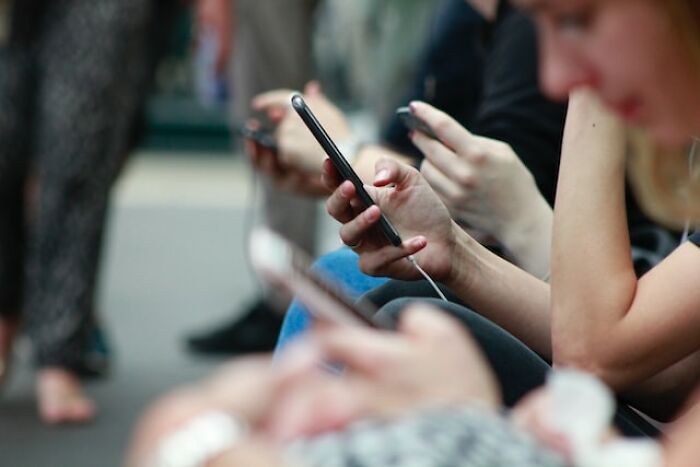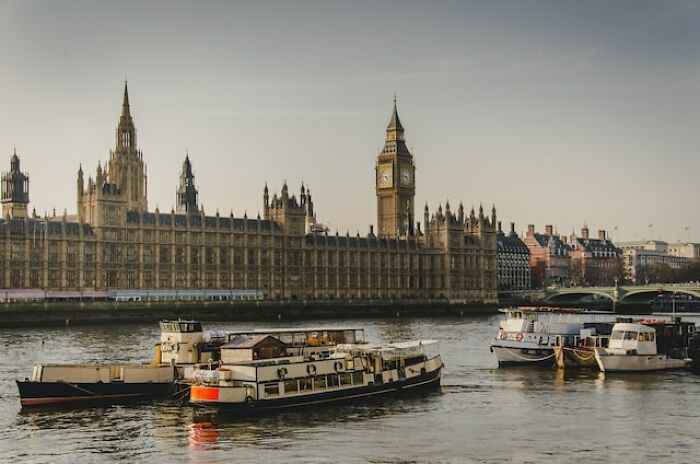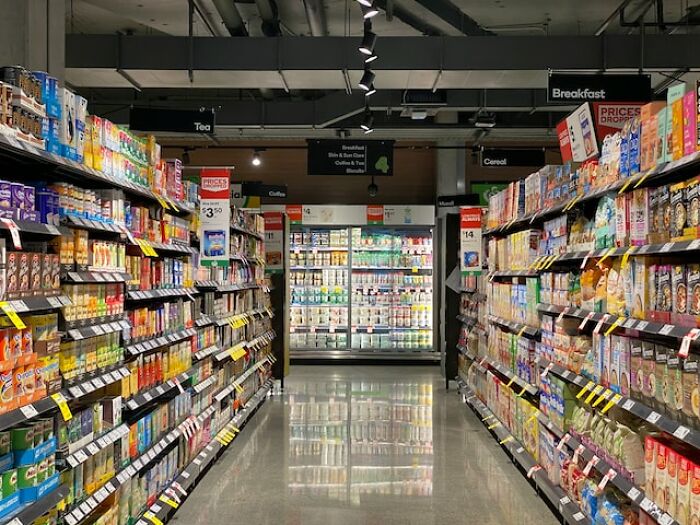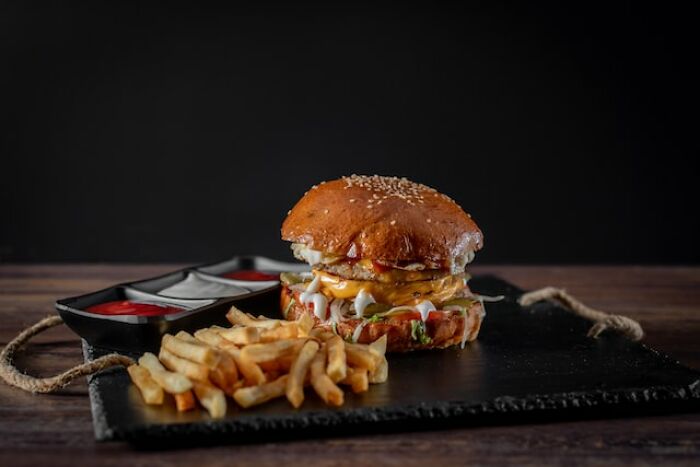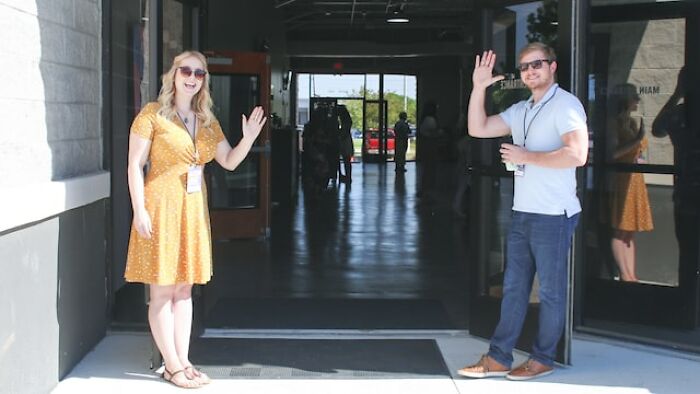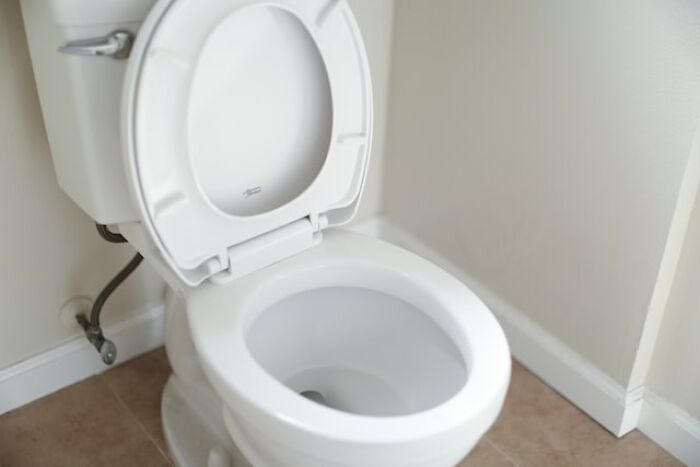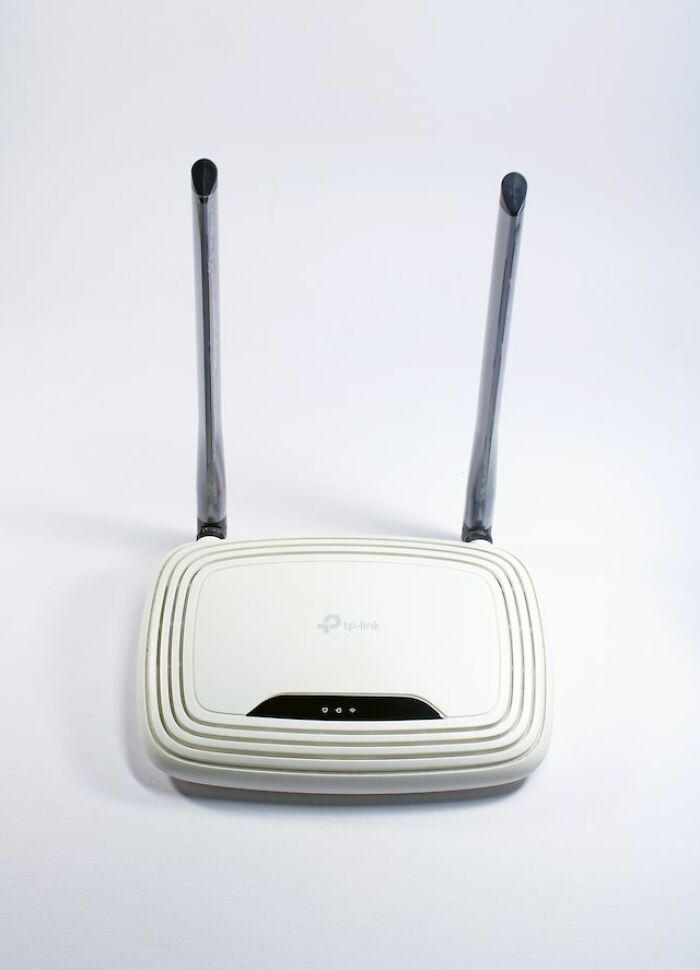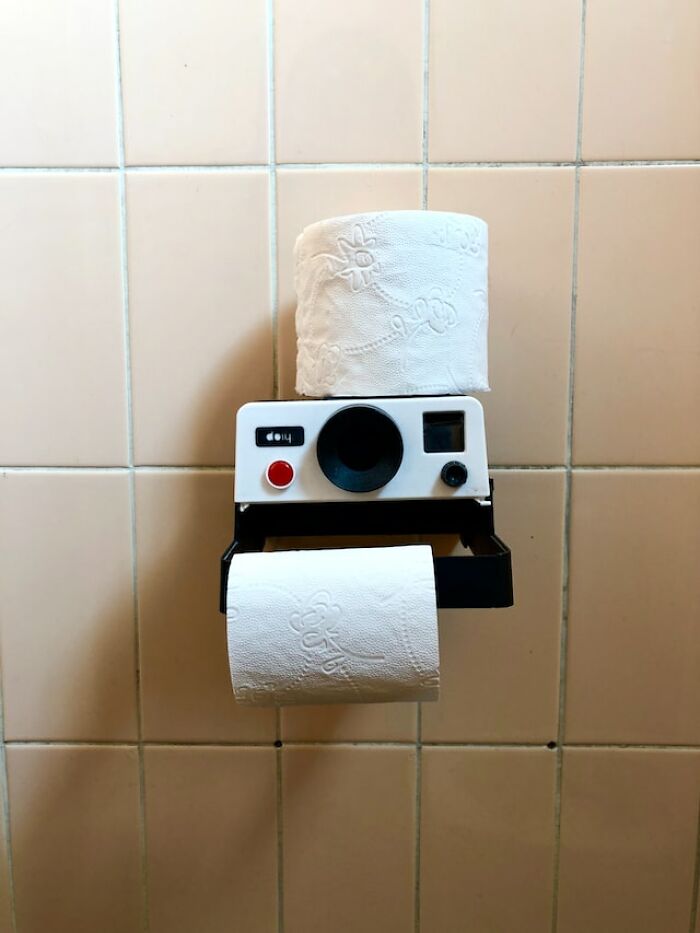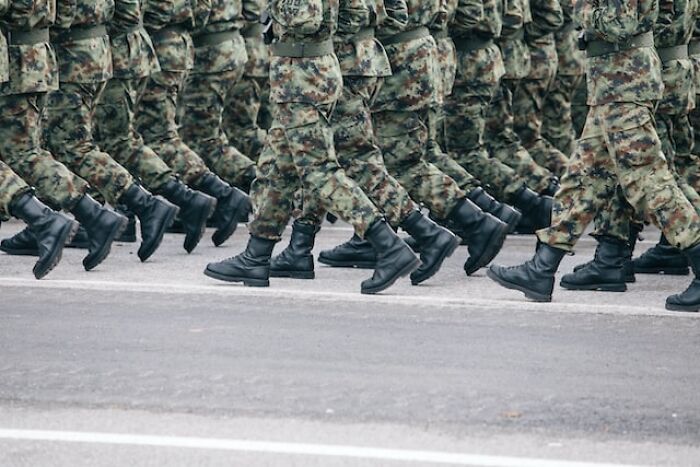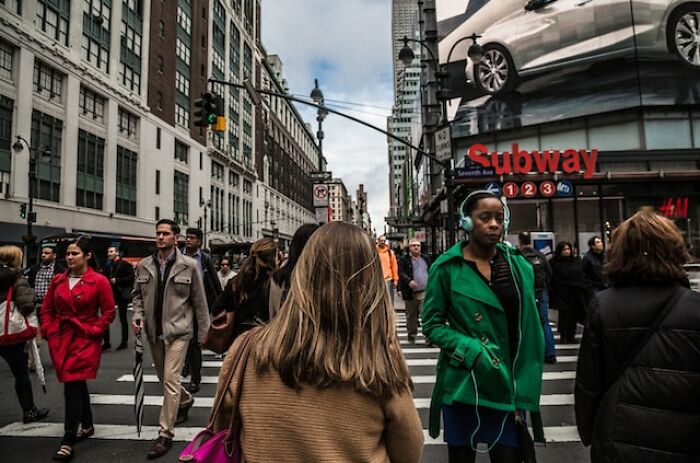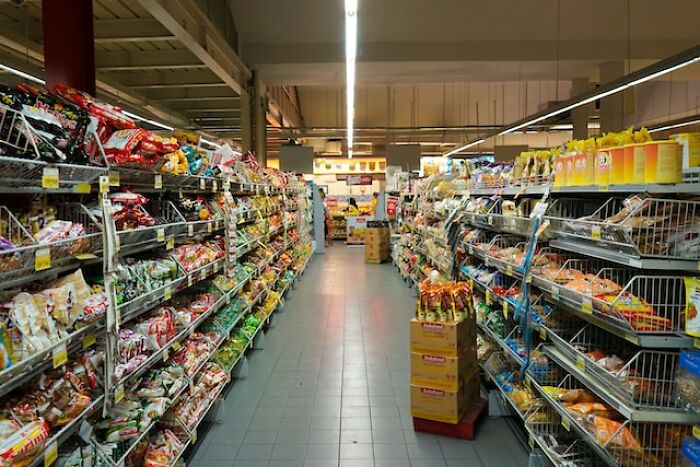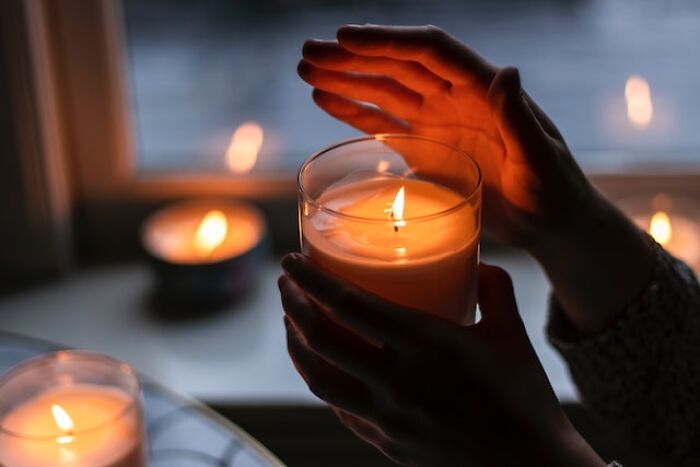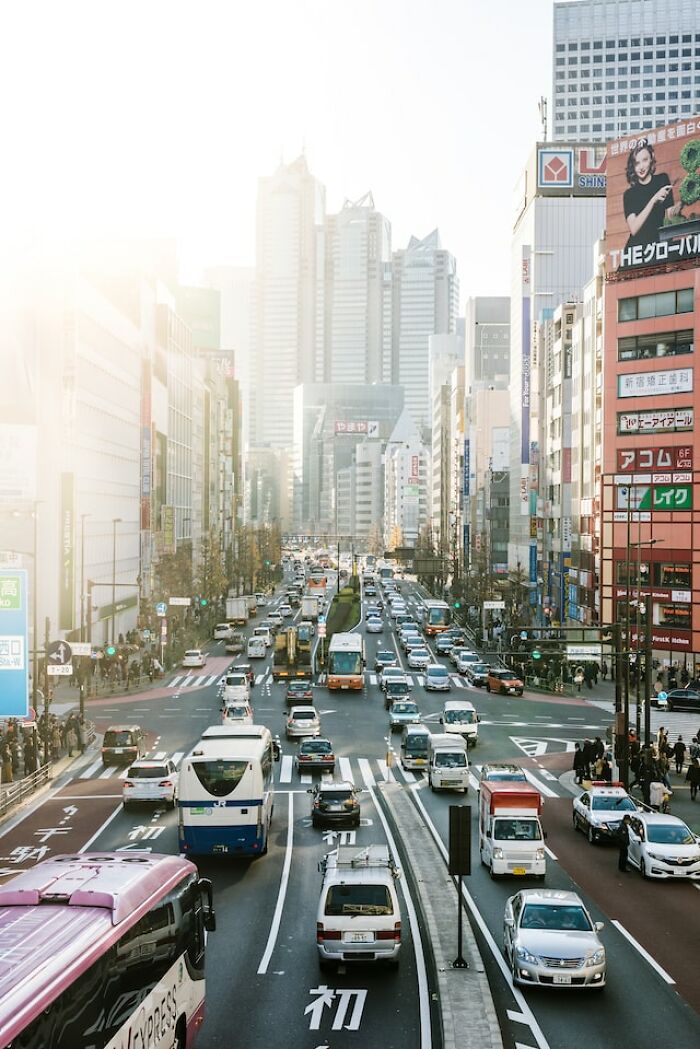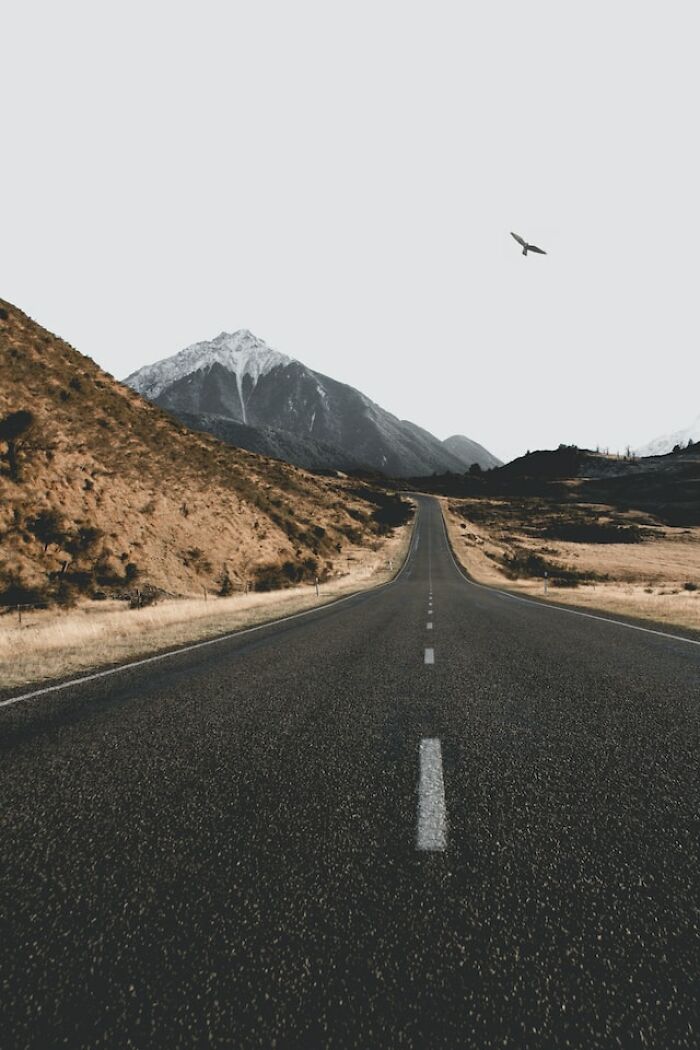There are 195 countries on the planet, and they’re all unique. That’s why when a person makes a drastic move from one nation to another, they’re guaranteed to experience some culture shock. Finding your favorite products at the grocery store can turn into a monstrous task, and learning how to communicate with the locals can make you feel like an alien. But these culture shocks can be even more prominent when a person’s home country is halfway across the globe or has a vastly different GDP.
A couple of curious Reddit users reached out asking people who have relocated from developing nations to more industrialized nations what came as a shock to them, and readers were very honest about the surprises they encountered. Below, you’ll find a list of some of the most fascinating responses, as well as interviews we were lucky enough to receive from Malaysian writer U-Ming Lee and travel blogger and founder of The Roving Heart, Raksha Rao.
Listen beautiful relax classics on our Youtube channel.
Be sure to upvote the responses that you agree with, or that introduced a new perspective to you, and let us know in the comments if you too have experienced moving from a lower income nation to a more affluent country. Then, if you’re interested in reading another Bored Panda article discussing the culture shock one person experienced after moving from India to the United States, you can find that right here!
#1
How people can just openly criticize their governments without fear of repercussions. I always thought it was incredible that there were so many late night hosts who would talk c**p about politicians and wouldn’t be in any danger with the law? If I tried even a fraction of what they said, I’ll be having a very interesting time with the police.
Image credits: mlyfen
To gain more insight on this topic, we reached out to U-Ming Lee, a writer originally from Malaysia who has experience living in and traveling to various other parts of the world. We were curious where he’s living now and why he decided to leave Malaysia in the first place. “I’m back in Malaysia right now, although I’ve just returned from a 10-month stint in Bangkok, Thailand,” U-Ming told Bored Panda. “I don’t plan to be ‘settled’ in the conventional sense in the near future. I thought I would slow travel full-time in the next few years until I’ve figured out where (and how) to settle. But I’ve concluded that Malaysia is not the country I’d like to live in.”
“Growing up in Malaysia, I was always an avid consumer of American and British media,” U-Ming shared. “So, I’ve always been keenly aware that living in a developing country means that you will always get to have the latest ‘stuff’ after the trend’s already died down elsewhere. When I was a kid, this meant that the latest consoles or games would only arrive six months to a year after they’d been released in the US. This was frustrating but not a deal-breaker.”
#2
How much of life is centered around working.
In Latin America, family comes first. People work to live, they don’t live to work. In the US, people will literally uproot themselves from their community and move across the country because their employer told them to.
Image credits: Soft_Contest2038
#3
Let me tell you a story. For the first few years of my life I lived in a rainforest in a little leaf hut with my grandmother. No electricity, no running water, no cars. It was literally a rainforest and I had no idea what the outside world was like. My father who lived in Australia (he was deported from my country because my family didn’t like him) then decided that at 7 I would have to come to Australia for my education. The whole experience was surreal to me. I remember flying on the plane and been so confused at how such a heavy thing could fly. Even the lights were amazing to me. Turning them on and off was like magic to my mind. When I landed in Australia my father asked me if I wanted a drink of water and my reply was, ‘there doesn’t seem to be a river anywhere near by, so how are we going to get it?’. My dad then showed me a tap and my mind was blown. Where was the river where this water was coming from? The refrigerator also blew my mind. In the village if we had meat we would eat it immediately otherwise and here was this magic machine that preserved it. He later asked if I wanted to go to the grocery store to get food for dinner. I replied with ‘You don’t have to grow your own food?’. My dad chuckled and we went to the grocery store. I was amazed. Most of these foods I had never seen in my life and there was so much of it! Also, I could eat any meat I wanted! I could keep going on with things that amazed me, but really there were so many.
Image credits: merrderber
What finally pushed U-Ming to decide to leave Malaysia was his father’s diagnosis with cancer in 2017. “As his chemo treatments progressed, the nerves in his hands and feet were increasingly damaged. This greatly affected his quality of life, so I looked for ways to help him cope with his condition,” he shared. “Ordinarily, families would look for occupational therapists to help the patient deal with his growing physical challenges and mental support services to cope with the emotional roller coaster. But in developing countries like Malaysia, these services are practically impossible to access, so whatever limited services exist are highly backlogged. The only thing my mum and I could do was to lend an ear.”
#4
Actual addresses. I can just use Google maps to find a location and have INSTRUCTIONS on how to get there. I can even receive mail! Mind-blowing.
The amount of food that goes to waste and also how much plastic there is in supermarkets. Everything comes wrapped and only the “perfect” produce is displayed. Going to a supermarket in general is a whole experience: so many brands, so much variety. Incredible.
The most important for me: feeling safe. I can have my phone in my hand by walking down the street. I can walk on my own, at night. I can trust a cop if something happens. People actually stop and help you if you need help. Just feeling like I’m not going to get killed, robbed or raped is great.
Image credits: Fingerhut89
#5
Being able to use a cellphone/laptop in public and not getting mugged for it.
Walking alone and not getting mugged.
Listen beautiful relax classics on our Youtube channel.
Just.. not getting mugged in general.
Edit: To the 1st world country ppl saying “well, that’s cause you haven’t been to ‘x’ place!”. I realize that some places in your country are shady/dangerous. But they are shady/dangerous compared to your understanding of reality. A “dangerous” 1st world peace is the equivalent of a safe 3rd world place.
Like… why do you feel the need to try and compete?
Im not being cute when I say “being mugged”. If I sat down my entire extended family (cousins etc) and asked “who’s been mugged”, almost every single person (out of 50ish) would raise their hand. Some of which have been mugged multiple times. Many of which we’re mugged at gun point.
It’s not an “occurrence”, it’s the *rule*.
You’ll never understand what a 3rd world country is like. Be happy you won’t.
Image credits: anotherbutterflyacc
“Towards the end of his life, as my dad’s physical state deteriorated, we exhausted ourselves looking for hospice or palliative care services, hospital beds, and breathing support apparatus to keep my dad comfortable,” U-Ming told Bored Panda. “Once again, this was way harder to access than it would have been in a developed country. I realised my dad suffered towards the end of his life because no resources were available to ease his suffering in my country. It didn’t matter how much money one had, these resources are so rare that the vast majority of ordinary people will never be able to access them.”
“So, my most potent reason for moving is the fear that, as I age (I’m 43 now), I face the growing risk of ending up suffering as my dad did.”
#6
The people. There is an obsession with identity and people thinking they have it so bad. I have seen people murdered and left in streets. I come to the states and aunt Jemima hurts peoples feelings. I don’t understand why people aren’t happy to live such a privileged life
Image credits: anon
#7
How many things are free.
Like cups, plastic utensils, condiments, matches, napkins. You can go to a gas station and ask for matches and they will give them to you…for free. Community dinners. Random donuts brought into the office. Pizza. Random lunches. People offering you free rides. etc etc. Foodbanks. So many things are just given to you if you know how to look. Perfectly good couches left on the street. Desks. etc Go to the free section on craigslist to see what I mean.
The whole “pick a penny, leave a penny” thing blows my mind til today. Free money…can you imagine that? People are literally leaving money for other people just because of the “inconvenience of change”. It’s mind boggling.
Image credits: xisnotx
We also asked U-Ming if he ever experienced intense culture shock when traveling or living in another country. “Besides Malaysia, I’ve lived in the UK, the Netherlands, Thailand and made short trips to the USA, China, Taiwan, France, and Spain,” he told Bored Panda. “After my first extended trip, i.e., from Malaysia to the UK, surprisingly, I can’t say I’ve ever experienced culture shock in a big way. Sure, there are little surprises, like how people in Spain have dinner late, or how you can’t flush toilet paper down the toilet in most places in Thailand and Taiwan.”
“But I’ve not had anything major, probably because I’ve always tried to understand the culture of the country I’m visiting as much as possible until I arrive there,” U-Ming shared. “Of course, there are things I’ll never fully understand, like the obsession with cricket in the UK or college football in the US,” he added with a smile.
#8
I’m from Asia and living in the uk. Was surprised about the social responsibility towards the environment, rivers were generally clean and well maintained. That and people didn’t have bowler hats and no one traveled via horse carriage like the tv said
Image credits: sowdowgg
#9
A lot of my family are blown away by supermarkets. Where they’re from, you have to wait in lines for hours to get to the grocery store and there’s no guarantee they’ll actually be food once you get to the front of the line.
On a lighter note, they’re also really surprised by how common lawns and yards are and hate them with a passion. According to them, they’re useless, take up valuable space, and are far inferior to courtyards.
Image credits: punkterminator
When it comes to misconceptions about developing and industrialized countries, U-Ming told us he could write an entire book on the topic! “The most obvious one is the misconception that people in developing countries live in trees, buffalo roam the unpaved streets, and everyone works in subsistence farming,” he shared. “Of course, that misconception gets dispelled as soon as someone steps out the airplane.”
“However, I think there is the tendency for people to go the complete other way and assume that, just because there are gleaming malls and modern public transportation in cities like Bangkok or Kuala Lumpur, the developing countries are just the same as the industrialised countries,” he added.
“This misconception leads influencers to promote living in developing countries as a gateway to an improved quality of life for a fraction of the cost in the industrialised world.”
#10
The fact houses came complete.
I come from Brazil, there the houses come all empty when you buy them, no kitchen, laundry, anything. You have to buy everything. I’m not sure if this is changed or not since I’ve moved to America a long time ago.
Another thing, safety. I almost died twice in Brazil and my mother couldn’t use her cellphone or calmly walk out of a bank or even drive with her purse out in the next seat, everything had to be hidden or you could be robbed or even killed. Whenever I go to Brazil to visit I always get tense and I get panic attacks because of the violence, also didn’t help the fact that I lived in one of the most, if not the most violent state
Image credits: griffinspells
#11
My mother was most shocked at the sheer number of privileged people who shun grade school education and are proud of it, eventually morphing into anti vaxxers and flat earthers.
Meanwhile in her day she often had to choose between eating and paying for the bus ticket to school. In many cases, food won, so she’d blister her feet walking to school in worn out shoes. Yet in the West people get K-12 education guaranteed for free with free school buses and free meals for the lower income students, and they’re total ingrates about it.
Image credits: nsci2ece
U-Ming added that there are a few caveats to the idea that living in a developing country can be an easy way to live luxuriously on low costs. “Things are frequently less expensive because they are poorer quality,” he told Bored Panda. “Everyone knows that you can fill up on authentic street food in Bangkok for $2-3 a meal. But people don’t always consider the compromises it takes to make it economical for the vendor to sell fried noodles for $2, e.g. the re-used oil, the processed meats that may be more filler than meat, the vegetables grown with pesticides banned in the West, and so on.”
U-Ming explained that it is harder to be productive in a developing country as well. “Water and electricity cuts will be more frequent than one is used to in an industrialised country. The infrastructure is less well-developed and well-planned, so you will find yourself stuck in traffic congestion more than you’re used to. Digital nomads working for clients in the West could find the time zone differences challenging to deal with. Individually, these sound like minor issues, but they add up over time.”
#12
First time I traveled to the UK, I prepared for everything…vaccinations, local contact numbers, things to do in case of emergencies, back up money in plastic so that I don’t get mugged, some home food/spices which I assumed won’t get in the UK, an electric rice cooker.. thought I had it covered.
Landed in Heathrow and went to the washroom. That’s when I realised I didn’t teach myself how to use toilet paper.
Image credits: SnooSeagulls9348
#13
10yrs ago I arrived in Australia. The first thing I notice is the smell. It’s so fresh, it’s nothing like I ever smelt in the first 18years of my life. It smells like freshly showered – baked – bloomed flowers. I can’t even describe it. It smells earthy good. I’m from the Philippines.
“Some people will find it harder to make a living in a developing country,” U-Ming explained. “A digital nomad friend who is a yoga teacher found it difficult to run her business in Chiang Mai, Thailand, because there weren’t many locals who could afford her services. This is less of a problem for digital nomads who sell services that can be delivered completely online, for clients in the industrialised world. I’ve freelanced as a market researcher for more than a decade by producing research reports; naturally, all my clients have been from developed countries (the US, UK, and Japan).”
#14
Moved from Brazil to England.
Good thing – How clean and organised things are, places just look complete, streets are well kept and safe. Public transport very reliable. Even the worst gov. scandals aren’t that bad. Things just work and you can trust people. When people get murdered it makes huge news.
Bad thing – People born here not realising their privilege. Fast fashion? What is that, buying stuff to wear once? Being afraid to reheat food or eat something 1 day out of date, leading to so much food waste. Not looking after the items they have because it’s cheap and easy to buy again, it drives me insane the way people treat their belongings, they get ruined so quickly (consumerist thinking I guess).
#15
my mom couldn’t believe that pure silence existed (she came from india)
And when it comes to misconceptions he’s observed about industrialized countries, U-Ming first noted that he writes about this from the perspective of someone from a developing country who lived in industrialised countries for 15 years. “People from developing countries view the industrialised world as the ‘land of opportunity’ where the roads are paved with gold.”
“Naturally, this isn’t the case,” he added. “More precisely: Being an entrepreneur in the developed world is harder than in developing countries. You can’t just set up a street food stall somewhere like London or Amsterdam and make a living that way. There are way more regulations and codes to comply with, and all manner of licenses and certificates you need to obtain before you can get started, unlike in the developing world.”
#16
Not me but my best friend. How much cheaper everything is. Iphones, most popular clothing brands, beauty products, electronics are mostly imported and triple the price in their home country.
Image credits: Automatic-Fee-35
#17
I was really surprised that the people don’t eat as healthy as I did back home. Almost instantly I put on 5 kg because my body wasn’t used to it.
Image credits: necesitovacaciones
“People in the developed world care about a lot of things,” U-Ming noted. “There’s a misconception that life in the developed countries is so structured that people are always busy. I’ve found that people in industrialised countries care about (or, at least, think about) issues like climate change, animal rights, or gender equality (for example) a lot more than in developing countries. This is not to say that people in developing countries don’t think about these things – they do – but, by and large, most people are too occupied with day-to-day survival to spend much time and energy dealing with these broader issues.”
#18
You have heard the phrase ‘death by a thousand cuts’? Well it is the reverse of that.
Everything is a little bit easier and it is the sum of the parts.
1 – Water. Turn on a tap and you can drink it. Boiling and filtering water to make it safe to drink and use in cooking takes about an hour each day.
2 – Food. You can eat what you want, when you want. Not because it is the only thing available or the only thing you trust not to make you sick.
3 – Room temperature. It is so much easier to keep your house a comfortable temperature and get a good night’s sleep.
4 – Travel. You can rely on the fact you can get where you want to go when you want to get there. The infrastructure is reliable.
5 Stability. You won’t turn on the world service and find out that there has been a complete change of government overnight and troops are on the street to make sure no one protests.
6 Lack of corruption. As hellish as getting through to a local government department you can get what needs to be done without bribing anyone.
#19
The toothpaste aisle. There is an aisle for toothpaste. It’s been almost 25 years, and that still boggles my mind
Image credits: annarchy8
Finally, we asked U-Ming if he has a favorite place in the world that he’s lived in. “For me, this has undoubtedly got to be London, England, where I lived for 3 years,” he shared. “The experience that speaks the most to me was getting on the London Underground and hearing 7 languages being spoken around me, none of which was English.”
“The sheer diversity of people and cultures that I encountered daily in London for those three years permanently expanded my perspective of life and made me appreciative of vastly different perspectives,” he told Bored Panda. “Living in London is probably what contributed the most to me not suffering from culture shocks whenever I move to a new country these days!”
If you’d like to hear more wise words from U-Ming Lee, be sure to check out his writing on Medium right here!
#20
No community in the 1st world.
I live in southern california, so I do hear its different in other places in America. Growing up I knew all my neighbors people would just walk into my house, show up for a quick bite to eat or coffee just because they were near by. I currently live in a series of town homes with most of my neighbors my age, and I know one of their names only because my roommate was was hitting on her and freaked her out.
Image credits: SirBigMan
#21
Not me but from a friend
“you have so much clean water that you even s**t in it”
Image credits: ShredHeadEdd
We also reached out to travel blogger and founder of The Roving Heart, Raksha Rao, to hear her thoughts on this topic. As someone who has traveled all over the world, we were curious if anything stood out to Raksha as shocking, in either developing or industrialized nations. “As I’ve traveled to different countries around the world, I’ve been struck by the incredible hospitality I’ve experienced in impoverished areas around the world,” she shared.
“From Tajikistan to Cambodia, where life can be tough and challenging, I’ve found the locals to be incredibly welcoming and hospitable,” Raksha told Bored Panda. “Despite facing their own struggles, these people seem to go out of their way to make visitors feel welcome and cared for. It’s a truly remarkable phenomenon that has always left a lasting impression on me.”
#22
My uncle joined the Peace Corps and lived in Tonga (tiny island in the Pacific) for two years. One of his friends from his time there went on a trip to the US and my uncle met her in LA. Anyhow, they got into a cab at the airport and my uncle said that his friend had this terrible look of anxiety on her face and just kept looking around; her head was just darting around every which way. He asked if everything was alright and she said she was waiting for the high-speed chases, gunfire, and explosions. My uncle had to explain that those sort of things typically only happen in the movies. For her the only window into the world outside Tonga was movies she had seen. It’s interesting how media, or the lack thereof, can shape someone’s perceived reality of the world.
#23
Laws and regulations actually mattered in first world countries
Image credits: anon
We also asked Raksha if anything has ever disappointed her in industrialized nations. “One of the things that have consistently disappointed me when visiting more industrialized nations, such as the United States, is the sheer amount of resource waste that exists,” she noted. “It’s almost as if there is an abundance of everything, which leads to a culture of overconsumption. Whether it’s electricity or plastic consumption, it’s clear that there is a lack of consideration for the long-term sustainability of our planet and its resources.”
#24
South Africa to Ireland.
People don’t have barred windows or security gates. I found it quite uneasy to sleep the first few months considering I have been tied up and robbed at gunpoint in Joburg which of course was not my first robbery but my 13th but my first time being tied up at gunpoint…
I probably have a higher chance of winning the lotto than getting tied up in Ireland. Whereas in South Africa I have a far higher chance of being tied up at gunpoint than winning the lotto.
#25
Internet speed.
Image credits: 3381024
Finally, we asked Raksha if she could share about her favorite place in the world that she’s ever traveled to. “There’s one that holds a special place in my heart: a small village called Faja Grande on the island of Flores in the Azores archipelago,” she told Bored Panda. “I had the opportunity to volunteer there for two weeks, and it was hands down one of the most beautiful and peaceful places I’ve ever visited.”
“Every morning, I would wake up to the calming waves of the ocean and walk just 10 minutes to a stunning waterfall,” Raksha shared. “No matter where I pointed my camera, the scenery was breathtaking. But it wasn’t just the natural beauty that made Faja Grande so special to me – it was also the people. I met so many expats who had fallen in love with the island and decided to make it their permanent home. It truly felt like a slice of heaven on earth.”
If you’d like to learn more about Raksha’s incredible world travels, be sure to visit her website The Roving Heart right here!
#26
No mosquitos or lizards in the room.
No dogs or cows on the street.
Image credits: RubberPluto
#27
Social safety nets (Canada), not a huge difference in the services available in a small town vs a big city, how well pets are treated here.
Image credits: squirrelstastegood
Are you feeling like you’d experience quite a bit of culture shock if you moved to a developing nation? Keep upvoting the responses that resonate with you or that introduce you to a new perspective, and feel free to share your thoughts on this topic down below. Then, if you’re interested in reading another Bored Panda article discussing culture shocks people from developing countries experienced when visiting industrialized places, you can find that right here!
#28
There’s toilet paper in most public bathrooms. My mom still carries toilet paper in her purse when she comes to visit me and we go out.
Image credits: milanesaconpapas
#29
I lived in a first world country for a short while, and the differences were both subtle and striking.
I went as a kid, and the most shocking thing to me was how beautiful everyone was. Back then, their pale skin, light hair and eyes were my beauty standard, which I obviously couldn’t fit lol.
There were so many foods I would never be able to have in india except if I had gone a little far away to a high class restauran. One big thing that stood out to me in terms of food differences were all the salads there… I had never had a salad before, as where I live in india, there is no lettuce available and most vegetables have to be cooked to be safe to eat. I had never tasted fresh vegetables.
the cleanliness and sanitation too, was extremely noteworthy. Outside my campus, the roads are strewn with garbage and rubbish, and the roads and filled with people and they are very loud. We don’t have too many traffic lights either. In Australia, the roads were abnormally clean to me, and everything just looked so *bright.*
Also the prevalence of makeup and short clothes… in india, even now I get scared to wear any bottoms that arent full pants. I now wear more “western” clothes (shirt and pants/jeans) and am sometimes told how inappropriate they are. I don’t wear skirts or shorts outside, and me and all my friends agree that going outside on the streets is terrifying, and we have never been there except with our parents/family. The closest thing I see to makeup here is lipstick and extremely thick and poorly drawn eyeliner lol, as well as white white powder to make their faces ”fair”. To see people in Australia wear short and even skimpy clothes was both shocking, and comforting at the same time…
im still young, so these differences aren’t super political or well put together. Just what I noticed through the eyes of a child.
#30
my dad was very surprised the military doesn’t force you to join or have random groups to kidnap for their own military groups! also my cousins were surprised helicopters can be used for things other than weapons!!
edit: america is not perfect but i’m happy we don’t have to endure the harsh reality of war & can escape it. 🙂
Image credits: Popular_Setting
#31
Not my story but my hs history teacher once told us he was from a small village in South America. His family was super poor and whenever he first moved to the United States and saw people of a different race it shocked him. He was about 8 when they moved and he said he only saw people that looked like him so it was surprising when he saw white people black people etc because he just thought everyone looked like him.
Image credits: I_Feel_Dizzzy
#32
That some parts of the 1st world are still 3rd world
#33
Moved to the US from India.
The good:
* Professors at universities care so much and are happy to give you their time if you want to learn. Back home, professors go on a power trip making you wait for them and aren’t very helpful.
* Things just work. Everything is simple. There’s a documented process for everything. You can get most things online. You don’t need expert knowledge to navigate the system for basics at least.
* Low level corruption is zero.
* People are kind and open minded and accommodating of differences. People in India are also, but it manifests in a different way that can be a bit annoying to me.
* Working hours are a lot saner than back home.
* Guns. They are not for me, but it feels like the British took away our guns after 1857 because they saw what happened in America, when I read history. I respect the way yall protect your gun rights.
* National parks. They just blow my mind.
* Marketing. You guys barely have any history and yet preserve that so well and sell tickets to every random thing that’s over 20 years old. Meanwhile there’s so many 1000+ year old temples in India that aren’t maintained well.
The bad:
* The individualism is so bad that everyone is so lonely. People cut off their family over things that can be worked out. People also want to exclude family from their lives for silly reasons. People self exclude themselves from taking part in others lives because they think they’ll be unwelcome.
* People don’t realize how good they have it and support stupid political movements that weaken the core of America. Immigration is a good thing for you guys. Capitalism is a good thing for you guys. The alternative is stagnation and rotting. Don’t go down that path.
* Americans judge their country against Europe. You shouldn’t. You’re America. You share your history with the other American countries, North and South. You all oppressed your natives, brought in slaves, and now you all have to figure out how to live with it. European countries don’t have that baggage. The people they oppressed and enslaved live far far away and their populations are extremely homogenous, they obviously do better in some respects. All your societal problems will be solved if you stop thinking of yourselves as Europeans in a different geography.
* Your food is soooooooo unhealthy.
* It’s really sad how the whole society seems to oppress moms.
* Your politics are silly and hilarious. No one seems concerned about any real problems somehow. Everything is fronting and gas.
I married an American and I gotta say you folks make great husbands. Also, I realized recently that American dads are just like Asian dads but with sports and physical skill stuff.
#34
that blue collar jobs pay more than office jobs (e.g. plumbers make better $ than a 4-year grad in an entry level white collar job). in the 3rd world plumbers, drivers, construction workers are lowest paid
#35
people pick up poop after their dog sh**s on the street. in russia there’s an expression: Весна придет, говно всплывет. which means “spring will come and s**t will float.” that’s cuz during the winter every time a dog takes a sh** on the street it freezes and gets covered by snow. now imagine the reverse process as it gets warmer
#36
From Colombia to Australia:
– There are no street dogs.
– You can flush the toilet paper in the toilet and there is no need for a rubbish bin at all in the bathroom.
– Public transport works 24 hours in some days.
– Most of women know how to drive a car (especially over 45 year old women)
– It is hard to find a Disco or nightclub. Most of them are just pubs to have a drink but there is no dancing involved.
– You can actually use Tinder with more confidence of not being kidnapped lol. Also, it is acceptable by others.
– One is able to use Google Maps to check routes of Public Transport to commute to work.
– Labour workers have the same respect as a doctor and they earn enough to live not survive.
#37
I was amazed at how you can go to libraries and borrow books for free without paying anything. I felt like there had to be some catch but after asking numerous questions I complied and got me a library card for borrowing a gazillion books lol
#38
You accidentally leave your things behind in restaurants/cafes and come back they are still there. And virtually zero petty crimes like robbery and pickpocketing. Super fast internet connection.
#39
The amount of choice in the stores. It’s not that my country didn’t have most of the same things, but if you wanted a yogurt you had like one or two choices. Globalization is closing the gap but it is still where I notice the biggest difference. Look at the shelves in places like the USA. You have to walk down an aisle and you are still looking at different options of the same thing. A lot of it is not even different flavors, just different brands, different packaging, different target audience.
Image credits: Louidze
#40
I remember being pulled over for speeding and my uncle who just got here was like just give him $5 bucks and I told him that’s not how it works here, lol
Image credits: Freaking_Donk_2020
#41
I worked with a great deal of immigrants when I worked for the state, and one of them talked about this once. She was from West Africa, and said the police were the most shocking thing about the US. They are incorruptible, and enforce everything. She said that was very shocking to see, and was very confused by people’s anger at the police. A police officer that you can’t bribe was beyond her expectations.
You might not know this, but native African immigrants(especially from west Africa) don’t like African Americans. This caused some issues in my past employment, and the thing they constantly gave them s**t about was how they talked about police and how they acted. This caused some serious screaming matches I had to break up more than once, and this conversation was an extension of that issue.
#42
I’ve spent some time in West Africa. One thing that surprised me was talking to a very, very, very well paid employee of an oil company wanting to move to live in a not so great European country.
Since he worked offshore he’d keep his job but didn’t want to live in his home country anymore.
When asked about why (I’m an immigrant myself), he asked me when was the last time I had a power cut at home. It would have been well over a decade then, it was an every day affair for him.
Sometimes it’s things that we don’t even notice.
Image credits: h2man
#43
I see how dads are less affectionate. In my culture men dote over their children and indulge them. It’s very common to peck on child’s cheeks in open. In first world countries, that seems to be a taboo if the child is a boy.
#44
So I know Mexico may not fall under third-world category, but my roommate moved to the states from an area that didn’t get electricity till 2012. According to him, an actual native of Mexico, at least his home town is super underdeveloped.
The thing he always tells me is so surprising about the US, is the sheer amount of different food. Even when he lived in Mexico City for a while, there was still a ton of food he just never had access to. It blew his mind when he found out we have Chinese, German, Indian, Greek, Thia, and Italian restaurants all with walking distance of our apartments.
#45
When you’re hungry, there is food.
Image credits: Ratcat77
#46
I know someone in that situation, she’s mostly surprised that people actually follow traffic rules, give right of way to pedestrians, things like that.
Image credits: kezinaur
#47
Running water 24/7. Electricity – almost no power cuts. I’ve been here 7 years, maybe one power cut for 5mins. Back home, it was 2-3hours of power cut on a regular basis. Traffic, so organized and easy to follow. AC/heat – atleast where I live.
For people who are saying the locals are finding problems to occupy themselves, it’s true. I call it ‘privilege drunk’, you can never truly appreciate things you have if you are born in it, you have to see the dark side to appreciate the nice things. This leads to locals being entitled because privilege is the normal for them.
#48
I was living in Ukraine and never traveled abroad before I turned 24. Then I moved to Dubai and lived there for 5+ years. Here are things that amazed me:
1. Was shocked that roads without potholes exist.
2. You can eat any fruits and vegetables without seasonality.
3. Quality of apartments and especially how nice and tidy are common areas before apartments.
4. Loans with low interest rates.
5. Safety. I don’t have to hide my phone every time I get into the public transport.
6. People smile back to you!!!
Image credits: Volvach
#49
As a woman, because aside from the possibility of being mugged, which is bad, it was the possibility of being r*ped:
1. Not needing to take an Uber or a cab to go back home at night, preferably with others.
2. No need to share your location with friends and family while going back home at night.
3. None of your friends asking to let them know as soon as you arrive home, because they wanted to know you arrived safely.
4. Being followed by men after getting out of public transportation and need to hide in a store or ask for help in your neighborhood.
5. I can wear whatever I want wherever I want, being trousers or miniskirt and no one will look, harass me or try to touch me without my consent.
#50
How deeply unhappy people in first world countries can be. The concept of depression was so new to my family, but also made me very aware of the diversity of the human condition when there is no extreme scarcity.
I don’t want to conflate correlation and causation, but the closest word that exists for “depression” in my language is “big sad”… and language tends to be indicative of cultural temperament. Whereas in my language we have about 25 words for various levels of inconvenience… we are annoyed I’m so many ways.
#51
How much you take everything you have for granted…like it’s just normal for survival to be so easy
#52
I was walking around Hong Kong, and was astonished to see that someone (presumably on the orders of some local governmental entity) had put up christmas lights above the railing on the subway. If they tried that in Manila, it would be gone and sold within hours.
#53
How easy it was to gain weight
#54
Air conditioning everywhere
#55
The size of everything, I was picked up from the airport in a Ford Expedition, which was about the size of my house back in Cuba, and then taken to a six bedroom house. I remember I used to feel uncomfortable in the big rooms, so I would hang out in closets and whatnot at first.
On a side note, right before I left my older brother told me that in the US you could tell the toilet to wipe you, and a hand would come out of the back to gently wipe your bottom. He went on to specify that I must ask in English, because if I asked in Spanish, the hand would put a finger in my a**. I didn’t s**t for a week.
So I guess another surprise was normal toilets.
#56
Mostly it comes down to expecting lower standards ( then being surprised when standards are higher)and then realizing that your third world view is affecting how you live in the first world. Having lived in a first world country for ten years now, the difference from when I came here to now is huge. Gone are the old attitudes towards sexuality, race and money. You question how you ever thought life in a developing country was normal. You question things openly , not in fear of reprisal. There is open discourse on political issues. There aren’t checkpoints at every intersection. People have an opportunity to be whatever they want. You notice things like trades jobs pay more relative to trades in a developing country. You get see an economy in motion. You are served by an large by a capable police force in the first world. Bribery is not rampant. Education is freely accessible. Electricity, running water. More than one national newspaper. A more open internet. Access to information. Great infrastructure for economical development. A chance to see public transit run effeciently. A ridiculous mixture of races and beliefs. A chance to know more than your limited world view. And if you can’t appreciate moving to a civlised part of the world then maybe it should jus chew you up and spit you out. I’m who I am today bcos I was given a chance to see things from a civilized point of view.
#57
1st world people consider things like ‘happiness’ and ‘fulfilment’ when job-hunting
#58
In the States, when people say “How are you?” they’re not really asking the question. I cringe whenever I think about all the times I stopped for five minutes and talked to the people who asked me that question during freshman year.
#59
I was surprised by the fact that nobody rode donkeys or walked horses in the city. It also surprised me that the government cleared the roads when it snowed because where I was raised the government simply didn’t care enough or have the funds to do that. Central air conditioning is also something that I’m still trying to get used to; I find it incredible that you only have to click a few buttons to cool down or warm up the entire house.
Last thing, though it is a bit silly, I was amazed that you could buy microwavable mashed potatoes (mashed potato flakes). It had just never occurred to me that it could be a thing that existed!
#60
There was a lady on a podcast I listen to the other night.
She ran from north Korea because she saw lights in the distance, and thought she might not starve to death if she went for it. Ended up sold into slavery, and all that fun Chinese stuff.
What really stuck out to me was that she said she was terrified once she actually had freedom. Because she was free. I’m not even going to begin to get into her reasons why, but damn if it didn’t put things into perspective
#61
From my grandmother who came her as the communist revolution happened in China.
Having a refrigerator. The ability to have food and not have it spoil for a while. With the addition of a refrigerator, pudding. She only had pudding once when visiting a wealth friend in China.
#62
Honestly it was the education system. The amount of people struggling with school was just mind boggling. The material didn’t seem that hard and only difficult part was learning English. At the risk of sounding like an a*****e, I placed honor roles without knowing much English and doing significantly less work than back home. However, it became clear that the kids weren’t entirely at fault, parents and the education system were. It’s a shame really, some people have crazy potential and they’re never pushed enough to see it.
#63
how confident people are and the way they approach and talk with sweetness(specially women) blew my mind
#64
Waaaaay back in 5th grade, a boy from Jamaica
Joined our class, he was surprised at how nice the elementary school was, and had to wear a jacket for a few weeks since he wasn’t used to have AC in the class room, or how friendly everyone was, since he’s seen how horrible tourists were when he lived in Jamaica.
#65
Growing up in a Muslim country, I was simply amazed how easy it is to buy beer and p*rn in US.
#66
I was young when I came to the us but I seriously expected flying cars. Was very disappointed
#67
Small things made us happy. Like playing on a dusty ground with a football (soccerball) made of plastic bags strewn together into a ball with string, using small rocks as goal posts. Or we’d just walk around and talk. No matter how hungry or poor people were, they found joy in something.
When I moved to a wealthier country, fellow peers were so moody and full of angst. Hanging out meant sitting together in a room playing gameboys (this was the 90s) or watching movies, nary any actual personal interaction. Home-made pizza (cheaper) was a no-no. Food brought over had to be dominoes etc. Oh, and god forbid you wear the same clothes to school. Ironically, in some schools, this actually make you more elite.
#68
As a Second World country citizen going through a Work and Travel J1 Program to the U.S flipped my world upside down. How easy it is to earn money, the freedom that money gives you, and everything that comes with it. At the end of the program when I had to get back home I was depressed for months (getting back to the s**t country I was born in) , needless to say I participated in the program for a grand total of 6 times (consecutive seasons) over the span of 4 masters (you need to be a full time students to participate, and I have reached the age limit for the program that is why I have stopped at 6 times), bought a 2 bedroom apartment with the money earned in the states, (a feat that takes at least 30 years worth of savings on a medium wage – as a couple in my home country).
Just to be clear, I have never done anything illegal or outside the parameters of the program, I am a law abiding citizen and appreciate the opportunity that the United States has given my country. I will be forever thankful of the broadened horizon that the experience has given me, and the lessening of the burden that life bestows upon me when money is hard to come by and with great effort.
While in the United States I have made friends, worked 2-3 jobs, worked over 80 hours a week every week for 16-17 weeks straight (no days off for the whole duration of the program), enjoyed the little time I had left in the week, perfected the art of grilling and drinking bud light, made love on top of a Brooklyn loft, proposed on top of the Rock, and continuously helped anyone that needed to find housing options for the summer in Newport Rhode Island.
#69
I don’t know. I moved from the worst place to live in Latin America (Venezuela) to Argentina.
I will say that I was impressed when I saw how people act here. In Venezuela, people are pretty homophobic, so when I say people walking in the streets holding hands and no one saying anything… I was happy.
Argentina may have a weird economy, but I like it here. People are great, the meat is amazing, and there are a lot of beautiful people (I’m straight, but that doesn’t mean I can’t recognize an attractive guy when I see him).
#70
Grew up in East Africa, live in United States. Everyone is LOUD, from the little kid to the tall shy nerd, loud and eloquent. Blows my mind everytime. Also, 9/10 of white people try too hard to avoid awkwardness, such that it comes out counter productive, and almost every one is just…super awkward (i work in retail)
#71
What surprised my grandmother when she saw Finland was how conservative people were with land usage here. In Nigeria, during imperialism and thereafter a lot of land has been wasted in grand architecture. I remember going to a university there, from entering the front gate we had to drive what was at least half a mile before reaching the first building. Otherwise it was just all grass
#72
obligatory not me but my dad,
He moved from Central America (El Salvador) to the US when he was a teenager and he says that the one thing that surprised him the most was how much more normalized it was for people to walk out at night in the US
#73
1) that you don’t have to pay a bathroom sentinel to use a poop hole, and that toilet paper is guaranteed to be provided to you.
2) wearing brand name clothes or speaking a different language isn’t a definite making for a kidnapping/theft/shooting
3) strangers smile at you and say good morning/hello and it’s supposed to not be creepy but rather polite
4) you have to apologize for bumping into people when filing through busy intersections and subway stations
5) you can buy an actual house near a city and it isn’t just your family summer home
6) people can obsessively pretend their dogs are their children and it isn’t considered a speculation for mental issues (I.e. highly unusual behaviour) but rather expected
7) no stray dogs and cats on the streets, and people pay to have mutts or get purebred animals that aren’t up to standard even though they are still paying $2000
I come from Eastern Europe.
#74
Public transportation, having bus stops and apps to know WHEN the bus is coming! Also they have maps of the stations.
No street dogs.
No catcalling.
People caring about world problems, like Palestine or Taiwan, in my country most of the protest are only for our own situation, because sucks!
#75
Honduran here who moved to Germany:
Being able to walk in the streets with your phone in your hand was a bizarre feeling.
How everyone was on time.
Passengers on trains have little to no instructions and mayhem doesn’t break lose.
Being able to find a ride online from a stranger and not be murdered along the way.
How everyone respected convention. (Once I saw a hat on the floor for about as long as I sat there and no one picked it up. In Honduras it’d have been gone in less than a heartbeat.)
How they allowed (and protected) the nazi party to hold a demonstration. In Honduras, they would’ve been repressed in no time.
How I didn’t really need a car. I was able to take public transportation with my expensive headphones, book and smartphone in full view.
#76
How ridiculous health insurance and credit score is. (More leaning 2nd world but still)Took me a while to understand wtf is a credit score and why its ‘important’ sounds like a load of bs. And how people love making payments on smartphones and cars instead of just buying when you have the money is a new concept for me
#77
How much fresh produce costs compared to fast food.
#78
People are nicer here. Also cost of living is way more. Racism too surprised me.
#79
(+) The internet speed.
(+) Green plants everywhere.
(-) 6 year olds not knowing how to read and write.
(Went from Syria to Belgium)
#80
I am now back in Vietnam, my home country, but I lived for 05 years in Texas (01 year in high school and 04 years of college).
My first time in Texas was when I was 15. The moment I got off the plane, my American host family was right outside the gate waiting for me. This was August 19, 2001. I thought that was both great and a bit lax in security. Little did I know that airport security in the US would change forever in just a few following weeks.
Another thing that struck and stuck with me about Texas was the size of most homes and their adjoining available spaces for outdoor activities. The size of homes did not actually stuck out immediately as I was a kid going through puberty with limited spatial awareness at the time. However, I was painfully made aware of it the moment I returned home for the summer. The family home that I grew up in suddenly felt too cramped. I vividly remember thinking to myself as I set my luggage down and stepped inside the living room that I had grown up in: “I bet and I can take 05 steps and I’ll be in the kitchen. “
About the availability of free public spaces in Texas, not much I can say there except that I really miss it. Just being able to step outside and play catch for real is a blessing, y’all.
#81
a few things….
Roads aren’t smooth and clean like glasses/mirrors
The girls are not promiscuous as portrayed in the MTV videos and movies
There are beggars, we just call them homeless people
#82
I’m not from a third world country but I spent a few years living in one. One thing that struck me when at home was how empty our streets are. Out in the suburbs where I live you very rarely see people walking about, over there people were always walking about no matter where in town you were. Fishing as a recreational activity was considered odd behaviour. Multi generational living was the norm.
#83
How you *actually* have rights. I bought a laptop on a big company, and I had a problem with the space key. I expected to have it repaired and having to pay, but *first world*. They take my laptop without a problem and give me a new one. Every other item devolution ended with my money in my pocket and not with *store credit/same product*, which was pretty awesome. Also, feeling like a *customer* in a supermarket and not as a suspect from robbery.
I come from a country that had a dictatorship regime 40 years ago, and I found also pretty awesome how the people use the public places. They are really public and for the use of the community!
#84
**THE GOOD**
How citizens could hold their leaders accountable to their responsibilities. I lived in a societey where basic duties were delivered to us as favours, even though it’s funded by tax payers.
**THE BAD**
How liberal fantasies have driven the focus off important issues in the west. It’s all about wokeness now, 350 pronuouns and counting, everybody is offended by one thing or the other.
#85
That you can actually save up and buy car by working as a waiter. Where I’m from waiters can barely eat 3 meals a day because of low salary. Even professionals can take up to decade to save enough money to afford a car.
#86
My friend moved from Mexico to Sweden to study. She was the first one to the student housing so she went out and bought water, thinking how expensive it was going to be to cook.
She was surprised you didn’t need to buy/boil water everywhere.
#87
How well lit everything was, it was like looking at christmas lights, and the first time i smelled burger king and saw a yellow mustang
#88
Just the first few that come to mind:
* Houses without fences
* Windows without bars
* Cashiers at the bank counting the money openly
* Being able to use the cellphone at the bank
* Cars stopping at stop signs
* Forgetting stuff in a public place and finding it intact the next day
#89
How corrupt politicians are. And how incredibly stupid people can be despite having some of the best education available.
#90
I come from one of the founding countries of the Third World, and moved to Canada.
The first things that hit me:
Holy c**p no one smokes here.
Buses are late here too.
Wow….people really have no idea how to handle a stick here.
Why the f**k are children sitting on floors in school when I apparently came to a civilized country?
Wait….how much did you say daycare costs?
Wait….how much did you say university costs? (both of these are free where I’m from).
Why does no one eat pork?
What stuck out the most after all these years is just how law-abiding people are. It genuinely confuses me to this day. I’m not talking about outright murder and theft, but little nuisance laws that would never be followed back home. (Example: smoking bans, lining up in lines, waiting for the light to turn green, seatbelts, speeding, etc..)
#91
Unlimited soda refills
#92
How s****y the fruits are in here.
Source: boredpanda.com
